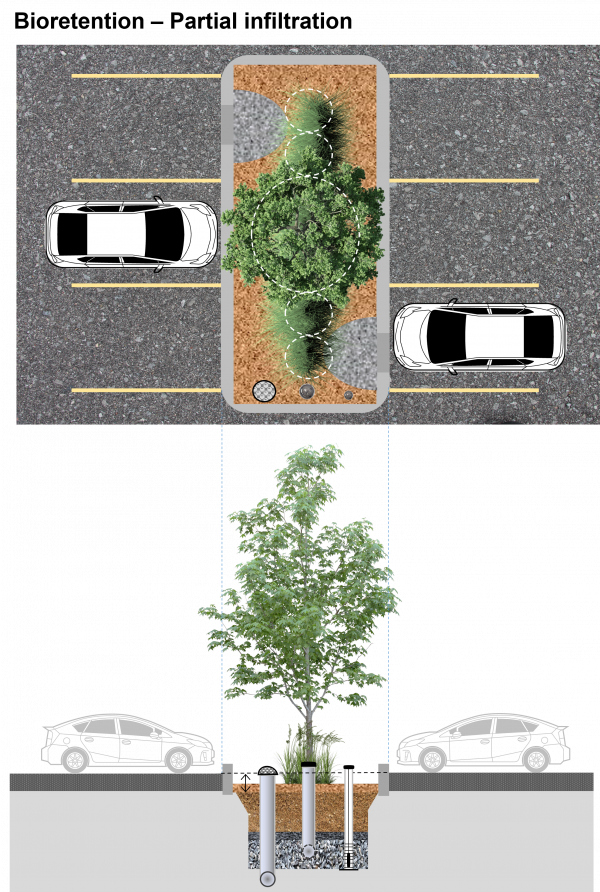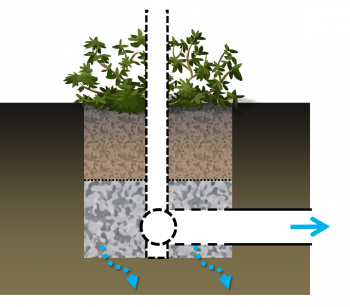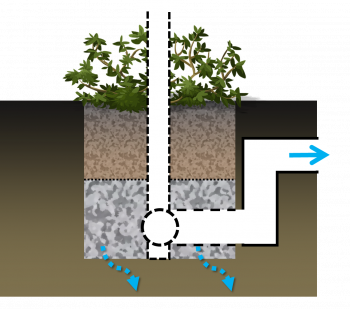Difference between revisions of "Bioretention: Partial infiltration"
Jump to navigation
Jump to search

| Line 45: | Line 45: | ||
<div class="col-md-8"> | <div class="col-md-8"> | ||
{{TOClimit|2}} | {{TOClimit|2}} | ||
==Overview== | |||
Over soils with slow infiltration rates, it is advantageous to drain a portion of the stored water prior to any upcoming storm. This popular design choice can optimize annual water balance, mitigate peak flow rates and by ensuring water flow through, can reduce the accumulation of sodium and chlorine ions from winter salting. | |||
[[File:Partial infiltration.png|350px]] | [[File:Partial infiltration.png|350px]] | ||
| Line 53: | Line 57: | ||
Partially infiltrating bioretention with anaerobic/aerobic storage zone. | Partially infiltrating bioretention with anaerobic/aerobic storage zone. | ||
==Materials== | ==Materials== | ||
*[[Underdrain]] | *[[Underdrain]] | ||
Revision as of 21:07, 15 February 2022

Bioretention cell schematic depicting full infiltration capturing and treating runoff from an adjacent parking lot. For more standardized details click here for the Design Criteria for Green Infrastructure in the Right-of-Way document A note: The following is an "image map", feel free to explore the image with your cursor and click on highlighted labels that appear to take you to corresponding pages on the Wiki.
Overview[edit]
Over soils with slow infiltration rates, it is advantageous to drain a portion of the stored water prior to any upcoming storm. This popular design choice can optimize annual water balance, mitigate peak flow rates and by ensuring water flow through, can reduce the accumulation of sodium and chlorine ions from winter salting.
Partially infiltrating bioretention with underdrain.
Partially infiltrating bioretention with anaerobic/aerobic storage zone.
Materials[edit]
Research[edit]
Bioretention: Partial infiltration volume

